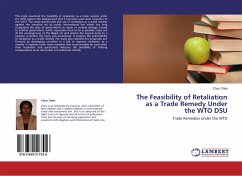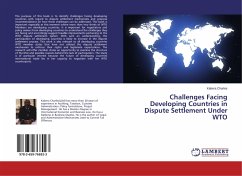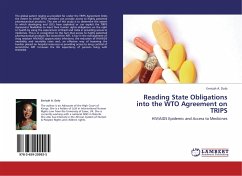This study examined the feasibility of retaliation as a trade remedy under the WTO against the background that it has been used since inception of the GATT. The study benchmarks the use of retaliation as a trade remedy against the standard set by public international law which has long recognized the duty of governments to repair or remedy damage caused to another government, which reparation must as far as possible, wipe out all the consequences of the illegal act and restore the injured party to a position as before the injury was occasioned. It analyses the practicability of retaliation as a trade remedy. The study also examines the proposals put forward by developing countries in a bid to improve retaliation as a remedy. It explores other trade remedies that could possibly be used other than retaliation and particularly discusses the possibility of utilizing compensation as an alternative and preferred remedy.








